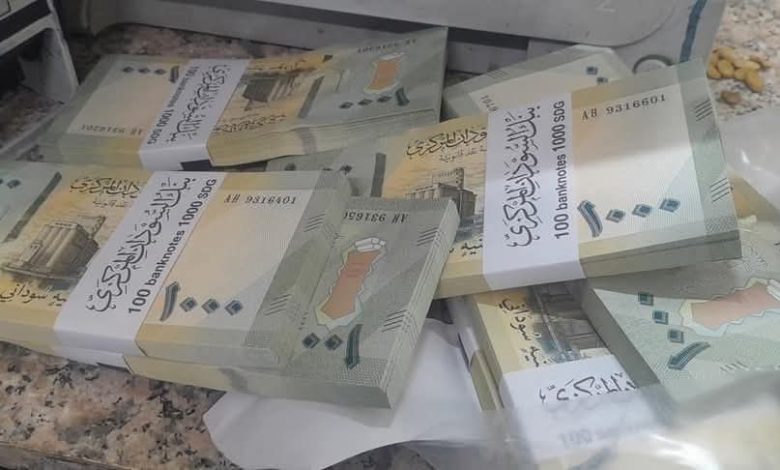Complaints Over the Escalating Liquidity Crisis and Bank Queue Congestion

Report by: Rebah Abdullah
Complaints have increased among citizens in several states where the currency denominations of 500 and 1000 Sudanese pounds were replaced, citing a shortage of cash, which is almost non-existent in some areas.
Most of the Sudanese states where the currency was replaced are facing a severe liquidity crisis, with unprecedented congestion in front of banks to withdraw cash.
Citizens have pointed out that cash owners are taking advantage of the situation, as the commission for transferring money from banks to cash has increased by 10-15% in some areas, particularly among exchange agents in the Atbara and Shendi market regions.
Several citizens complained that they were unable to purchase even the most basic necessities, such as bread, which led them to use the Bankak app for purchasing. However, some bakeries refuse to deal with payment via banking apps because some vendors do not have the devices that support these apps.
The commission for exchanging cash using the Bankak or Fawry apps has reached 10%. Citizens reported that they buy 50,000 pounds with a commission of 5,000-7,000 pounds, and they pay 10,000 pounds for every 100,000 pounds. The market is experiencing stagnation due to the lack of cash availability.
Bank branch managers have acknowledged the liquidity issue and attributed it to the central bank’s failure to provide the new 1,000-pound notes. This, they argued, has led to their inability to meet customers’ daily withdrawal limit of 200,000 pounds. Consequently, they have been forced to provide customers with a maximum of 50,000 pounds per day, despite significant complaints from customers.
Economic researcher and analyst Dr. Haitham Fathi told Al-Ahdath that the liquidity crisis is exacerbating citizens’ problems in obtaining basic consumer goods, pointing out that there are difficulties in areas experiencing conflict due to the scarcity of paper currency. Fathi warned that this situation could worsen the issue of currency counterfeiting.
He also noted that the shift from paper to electronic transactions requires time to stabilize, adding that the currency replacement at this time has worsened the liquidity crisis and led to price increases. Prices vary by 10 to more than 20% depending on whether payments are made in cash or via apps, and prices differ from one merchant to another and from one region to another.
However, the Supreme Committee for Currency Replacement, with the presence of Finance and Economic Planning Minister Dr. Jibril Ibrahim, issued directives on Tuesday to provide the necessary liquidity to banks to allow citizens to withdraw the agreed amounts after hearing complaints from some states regarding the liquidity shortage. The committee has instructed that sufficient liquidity be made available to banks to ensure that citizens can access the agreed withdrawal amounts.



